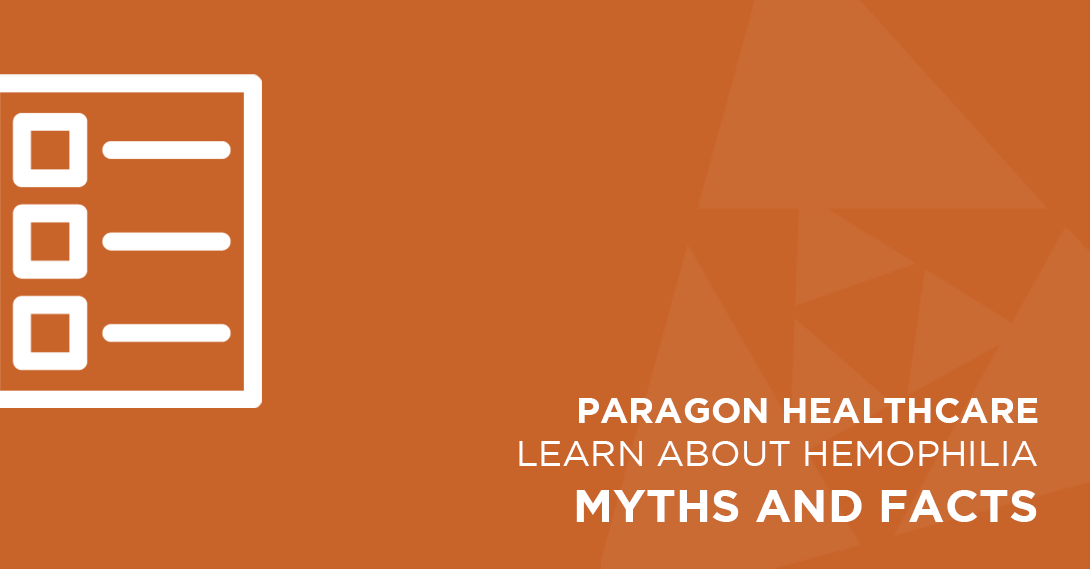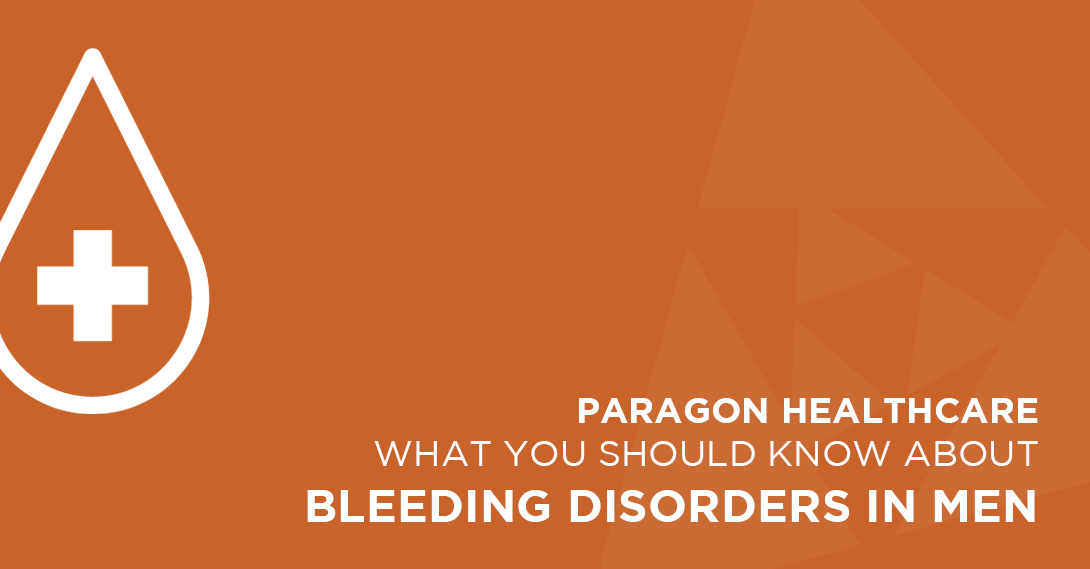Myth: Only men can have hemophilia…
Fact: Men are more likely to be diagnosed with hemophilia and present symptomatically, but females can also have hemophilia. A bleeding disorder results from a flaw in the body’s clotting system. Specialized proteins in the blood are called clotting factors. If they are missing or do not work properly, a bleeding disorder can result. According to the CDC, a female with one affected X chromosome is a “carrier” of hemophilia. Sometimes a woman who is a carrier can have symptoms of hemophilia. She can also pass the affected X chromosome with the clotting factor gene mutation on to her children. Although men and women with bleeding disorders have some similar symptoms, such as bleeds into joints and tissues, women can experience added complications during menstruation, pregnancy, labor, and delivery. Some doctors are not familiar with bleeding disorders in women, putting women with undiagnosed or untreated bleeding disorders at risk for serious complications.
Myth: Hemophilia is untreatable and life-threatening…
Fact: Hemophilia may not have an existing cure, but it can be treated with medication. Additionally, proper nutrition is important, and exercise helps joints stay healthy. The CDC states the best hemophilia treatment is replacing the missing blood-clotting protein so blood can clot properly. Replacing the missing protein is done by infusing (administering through a vein) commercially prepared factor concentrates. People with hemophilia can learn how to perform these infusions independently so they can treat bleeding episodes quickly when needed. Routine infusions (called a prophylaxis) can also be given independently, at home, preventing many bleeding episodes. In certain situations, hemophilia may become life-threatening if not properly treated quickly, but the underlying disorder itself is not a death sentence. Many people diagnosed with hemophilia will enjoy a full life.
Myth: Hemophilia is something that I can’t talk about because no one will understand…
Fact: Bleeding disorders may be confusing or misunderstood by the general public. You can help change that by discussing your bleeding disorder with friends, family, co-workers, and community members. The more that hemophilia is talked about, the better things can become for the community. Finding ways to open up about what you’re going through can also help other hemophiliacs who are struggling to share their stories. Whether it’s talking to someone one-on-one, writing about it, or recording a video – you can share your story to help people understand what it really means to have hemophilia.
Myth: I can’t do what I love because I have hemophilia…
Fact: Like any obstacle in life, hemophilia can be looked at in two ways. It can be looked at as something that keeps you from doing what you love, OR it can be looked at as a hurdle to overcome so that you can keep doing what you love. For many hemophiliacs, it takes time, effort, and work to accomplish their goals – but with dedication and a support system, you can ultimately achieve whatever you set your mind to. Set goals for yourself like becoming healthy enough to play with your kids or doing something that you love. Start by setting small daily goals and work towards a bigger goal at the same time.
Myth: Hemophilia is the same for everyone with the disorder…
Fact: Hemophilia is a different experience for each person. There are two different types of hemophilia, type A and B. Type A means a person either has low levels of Factor VIII or no factor VIII in their blood, and type B means a person has low levels of Factor IX or no factor IX. There are also different levels of severity (mild, moderate, and severe) depending on the factor levels of the person’s blood. Symptoms are also different between men and women – no two hemophiliacs are exactly alike. They each have a different history, have gone through different treatment types, have received care at different facilities, and have different ways of managing their symptoms.
Myth: If I have hemophilia, I can’t have children…
Fact: Hemophilia is an inherited genetic disorder, but this doesn’t mean that someone with the bleeding disorder cannot procreate. Discuss your decision to have children with your doctor and develop a plan that takes into consideration any risks that may be associated with pregnancy and delivery.
Myth: As long as I am careful, I don’t need to treat or worry about my hemophilia…
Fact: If you have symptoms of a bleeding disorder, it is important to seek treatment from a specialist, called a hematologist. If a bleeding disorder is left untreated, it can cause serious complications to the joints and organs. The right medication as prescribed by your doctor in combination with nutrition and exercise is the best way to prevent a bleed or reduce the severity if one occurs.
Learn more about the Hemophilia Division at Paragon Healthcare, Inc. on our website at www.paragonhealthcare.com/hemo
Additional resources:
https://www.hemophilia.org/Community-Resources/Women-with-Bleeding-Disorders/Women-also-Bleed
https://victoryforwomen.org/
https://www.hemophilia.org/Community-Resources
https://www.hemophilia.org/Researchers-Healthcare-Providers/Medical-and-Scientific-Advisory-Council-MASAC/MASAC-Recommendations/MASAC-Recommendations-Regarding-Girls-and-Women-with-Inherited-Bleeding-Disorders






